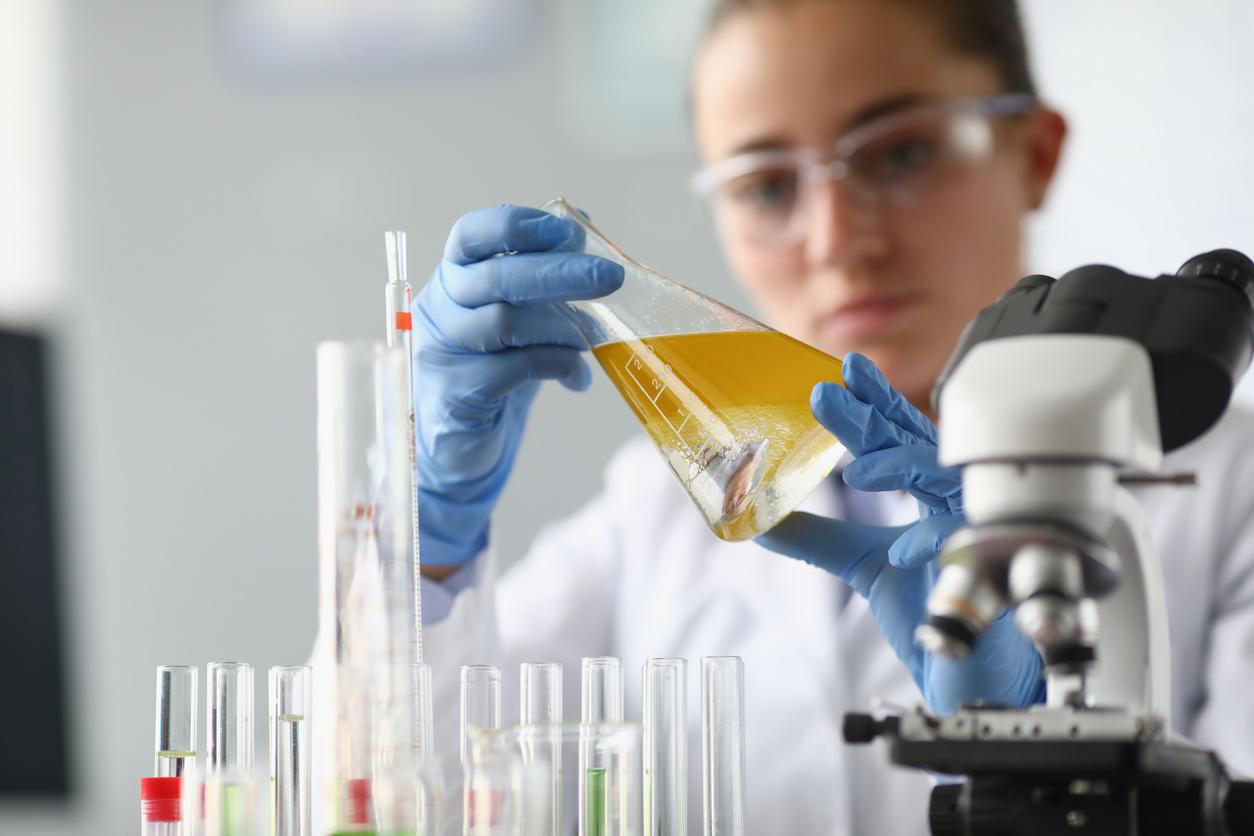New immunotherapy triples the life expectancy of lung cancer that is locally widespread and resistant to conventional treatment. A hope for patients who, like Johnny Hallyday, suffer from inoperable lung cancer.

In locally advanced, inoperable non-small cell lung cancer, the median progression-free survival is 16.8 months on durvalumab, an anti-PD-L1 antibody, versus 5.6 months on placebo, i.e. more than ‘one more year of survival, which has never been observed before.
This corresponds to a reduction in the risk of disease progression or death by almost half (HR = 0.52; 95% confidence interval, 0.42 to 0.65). This benefit is observed regardless of the stage of the disease or the histological type (adenocarcinoma or squamous cell carcinoma).
These are the results of a analysis of the PACIFIC study which is published in the New England Journal of Medicine.
A study on a new strategy
The PACIFIC study is a phase 3 placebo-controlled trial that evaluated the role of a PD-L1 inhibitor in locally advanced and inoperable stage III non-small cell lung cancer. The affected patients had disease that had not yet progressed after receiving at least two cycles of platinum-based chemotherapy along with radiation therapy (“radiochemotherapy”). A total of 713 patients were randomized to receive for 12 months either an anti-PD-L1 antibody, durvalumab, or a placebo.
Frequent lung cancer
Inoperable stage III lung cancers (where not all of the cancer can be removed by surgery) accounts for one third of all patients with non-small cell lung cancer. These are locally advanced primary tumors, either with mediastinal involvement or involvement of the lymph nodes of the mediastinum.
Radiochemotherapy is the standard of treatment for this stage III non-small cell lung cancer, but only 15% of patients are still alive 5 years after radiochemotherapy, and this percentage remains largely the same despite several randomized trials integrating different options. treatment.
Good tolerance
In PACIFIC, treatment-related adverse events were observed in 67.8% of patients in the durvalumab group compared with 53.4% of patients in the placebo group. The rate of immune-related adverse events is 24.2% with durvalumab and 8.1% with placebo. Treatment was discontinued due to pneumonia in 6.3% of patients who received durvalumab and 4.3% of those who received placebo.
Overall, there is a slight increase in adverse reactions noted in the durvalumab group, but the rates of serious immunity-related adverse events, including the theoretically increased risk of pneumonia after prior radiochemotherapy, are not significantly more frequent. in the durvalumab group.
The results of the PACIFIC study therefore broadly support the integration of a PD-L1 inhibitor into the strategy for the treatment of advanced and inoperable non-small cell lung cancer, including after radiochemotherapy. This study paves the way for trials in lower stage (I to III) lung cancers that are operable but with a high risk of relapse.

.

















